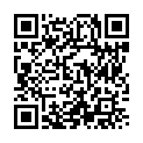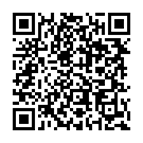Safe shovelling this winter
Unfortunately, snow shovelling is around the corner. We all know it. And we also know that each year, some people over exert and develop heart attacks, strokes and other injuries or illnesses while shovelling.
Most surprisingly, it isn’t always older individuals who are at significant risk. As often, it is inactive forty- or fifty-year-olds with several cardiac risk factors who may unknowingly be putting him- or herself in harm's way.
“The sudden and high level of exertion performed while snow shovelling is equivalent to running full tilt on a treadmill or lifting extremely heavy weights for hours,” said Jill Robinson, a physiotherapist and community wellness co-ordinator.
“For a person who is inactive, this puts an enormous strain on the heart and coupled with the constriction of blood vessels and increased clotting properties that occur in cold temperatures, a heart attack or sudden death can easily occur.”
Dr. Sam Campbell, chief of the Charles V. Keating Emergency and Trauma Centre at the QEII Health Sciences Centre, said each year once snow is on the ground, people begin showing up at the emergency department with chest pain that turns out to be a heart attack.
“We have a rule: if a person presents with chest pain and says he’s been shovelling snow, we treat it as a heart attack right away,” he said.
For individuals with cardiac risk factors or diagnosed heart disease the following two points are important considerations:
- If you have had a heart attack, stroke or heart surgery in the past, it is best to hire someone to shovel your driveway or look into local snow removal services. The same applies if you have diagnosed cardiovascular disease, type one or two diabetes, or pulmonary disease.
- If you have more than one cardiac risk factors ( > age 45 men, > age 55 woman, BMI > 30, sedentary lifestyle, high cholesterol, high blood pressure, or pre-diabetic, smoker or family history of heart attack), it is important to speak to your family doctor about safe levels of exercise intensity and your ability shovel snow this winter.
You can greatly reduce your risk by adapting your snow shoveling routine to include the following practices:
- Always warm up for 5-10 minutes before starting to shovel. This could be a simple as walking on the spot for a few minutes until you feel that your heart rate is up slightly and your body is warm.
- Monitor your level of exertion. You should always be able to talk in full sentences while shovelling. In order to control your level of exertion work slowly and steadily. Shovel before the snow is too deep or heavy and when possible push the snow instead of lifting.
- Avoid drinking alcohol, drinking coffee or smoking for one hour before and after shoveling. This can elevate your blood pressure and contribute to stress on your heart.
- Avoid eating a big meal for one hour before shoveling. The work of digestion can divert blood flow and oxygen from your heart and add to the stress on your heart.
- Take breaks every 5-10 minutes and drink water frequently to stay hydrated.
- Dress in layers to avoid over-heating as this can also increase your blood pressure and place a strain on your heart.
- Recognize the warning symptoms of a heart attack (discomfort, pressure, pain or burning in your chest, neck, jaw or arms, dizziness, nausea, unusual fatigue or shortness of breath). Stop immediately if you experience these symptoms. Go inside and, if necessary, call 911.
If you are interested in learning more about monitoring your level of exertion or recognizing signs and symptoms of over-exertion, visit www.communityhealthteams.ca and register for one of the physical activity education sessions.
View our snow shoveling safety poster here.



